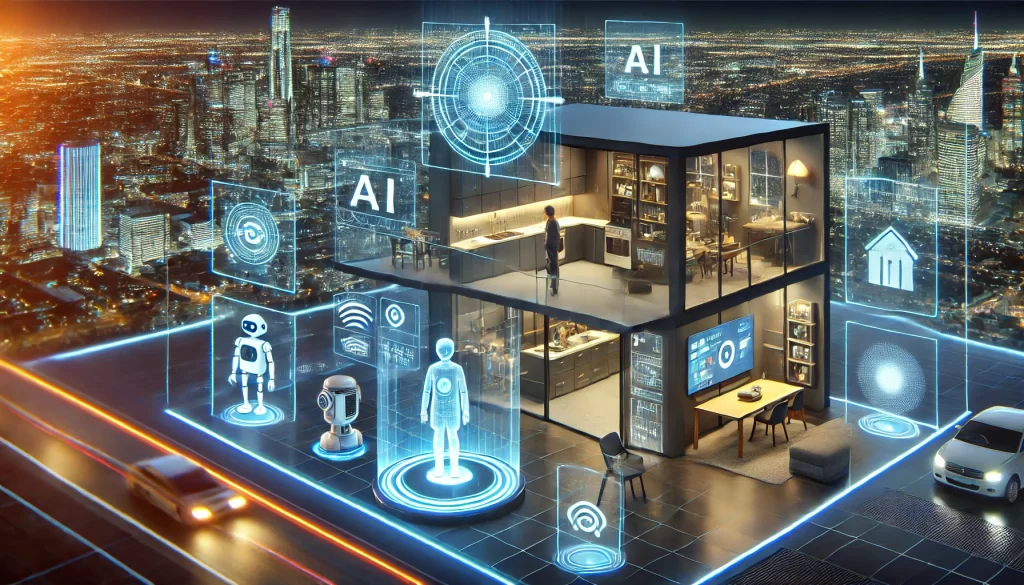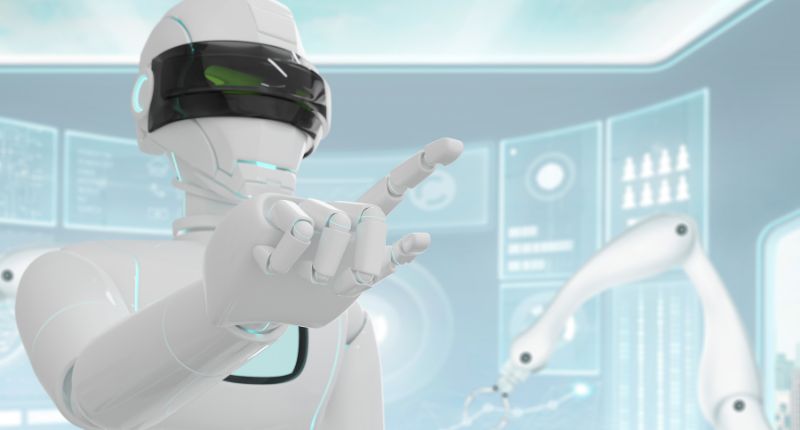Artificial intelligence (AI) is revolutionizing the way we live, and nowhere is this more evident than in smart homes. AI-powered automation is transforming homes into intuitive, efficient, and highly responsive living spaces. From voice assistants and smart security systems to energy-saving appliances, AI is reshaping how we interact with our homes.
This article explores the role of AI in smart homes, how it enhances security, convenience, and energy efficiency, and what the future holds for AI-powered home automation.
The Rise of AI in Smart Homes
The concept of smart homes has existed for years, but AI has taken it to new heights. With advancements in machine learning, natural language processing (NLP), and IoT (Internet of Things), smart home devices can now learn user preferences, anticipate needs, and even make decisions autonomously.
Voice assistants like Amazon Alexa, Google Assistant, and Apple’s Siri have paved the way for AI-driven home automation. These virtual assistants allow homeowners to control lights, appliances, and security systems using simple voice commands. But AI’s influence extends far beyond voice recognition.
AI-Driven Home Automation
1. Intelligent Climate Control
AI-powered thermostats, such as Nest and Ecobee, learn household routines and adjust temperatures accordingly. They optimize energy use by detecting when people are home, reducing unnecessary heating and cooling. Some even integrate with weather forecasts to fine-tune indoor conditions.
2. AI-Powered Security Systems
Traditional security systems have evolved into AI-driven surveillance networks. Smart cameras use facial recognition to distinguish between family members, guests, and potential intruders. AI-powered doorbells, like Ring and Google Nest, provide real-time alerts and allow homeowners to interact with visitors remotely.
Additionally, AI enhances cybersecurity by detecting unusual network activities and blocking potential threats in connected home devices.
3. Smart Lighting and Appliances
AI enables automation of lighting systems that adjust brightness and color based on time of day or user preferences. For example, Philips Hue and LIFX bulbs can sync with music, movies, or even circadian rhythms to enhance comfort.
AI also optimizes appliances like refrigerators, washing machines, and ovens. Smart fridges track food inventory, suggest recipes, and even notify users when groceries are running low. AI-enhanced ovens can recognize different foods and set the ideal cooking temperature.
4. Personalized Entertainment
Streaming platforms like Netflix and Spotify use AI to recommend content based on user preferences. Smart home systems can integrate these platforms into a centralized hub, providing seamless entertainment experiences. AI-powered smart speakers curate personalized playlists, while AI-driven TVs adjust settings for optimal viewing based on ambient lighting.
How AI Enhances Energy Efficiency
One of the biggest advantages of AI in smart homes is energy efficiency. AI-powered systems analyze energy consumption patterns and suggest ways to reduce waste.
For instance, smart grids allow homes to optimize power usage based on peak hours, reducing electricity bills. AI-driven water management systems detect leaks and regulate water usage, helping conserve resources.
Moreover, AI-enabled solar panels track sunlight exposure and optimize energy storage, making renewable energy more practical for everyday use.
AI in Home Healthcare and Wellness
AI is also making homes healthier and more accessible, particularly for seniors and individuals with disabilities.
1. AI-Assisted Elderly Care
Smart homes integrate AI-powered sensors to monitor seniors’ movements, detect falls, and send alerts to caregivers. Voice assistants remind users to take medication, while AI-powered wearables track vital signs and notify medical professionals of irregularities.
2. AI for Better Air Quality
AI-driven air purifiers and HVAC systems adjust filtration levels based on indoor and outdoor air quality. These systems monitor humidity, allergens, and pollutants to create a healthier living environment.
3. AI-Powered Sleep Optimization
AI-driven sleep trackers analyze sleep patterns and recommend adjustments for better rest. Some smart beds even adjust firmness and temperature to improve sleep quality.
The Future of AI in Smart Homes
The future of AI in smart homes is exciting and limitless. Some trends to watch include:
1. Hyper-Personalization
AI will become even more adept at learning individual preferences. Future smart homes will offer hyper-personalized experiences, adjusting lighting, temperature, and entertainment based on biometric data and emotional states.
2. Fully Autonomous Homes
Homes of the future may operate with minimal human intervention. AI could manage energy consumption, security, and maintenance seamlessly. Imagine a home that detects plumbing issues before they occur or replenishes groceries automatically.
3. AI-Powered Robotics
Robotic assistants, powered by AI, could handle household chores, from cleaning and cooking to pet care. These robots would learn and adapt to user preferences, making daily life easier and more efficient.
4. Smart Cities Integration
AI-driven smart homes will connect with smart city infrastructure, optimizing energy consumption, traffic patterns, and emergency response systems. This interconnected network will lead to safer and more efficient urban living.
Conclusion
AI is reshaping smart homes, making them more secure, energy-efficient, and convenient. From intelligent climate control and personalized entertainment to home healthcare and robotic assistants, AI is at the forefront of the next generation of living spaces.
As AI technology continues to advance, smart homes will evolve into self-sustaining ecosystems that adapt to our needs, ultimately enhancing our quality of life. The future of smart homes is not just about automation—it’s about creating a more intuitive, responsive, and harmonious living environment.


